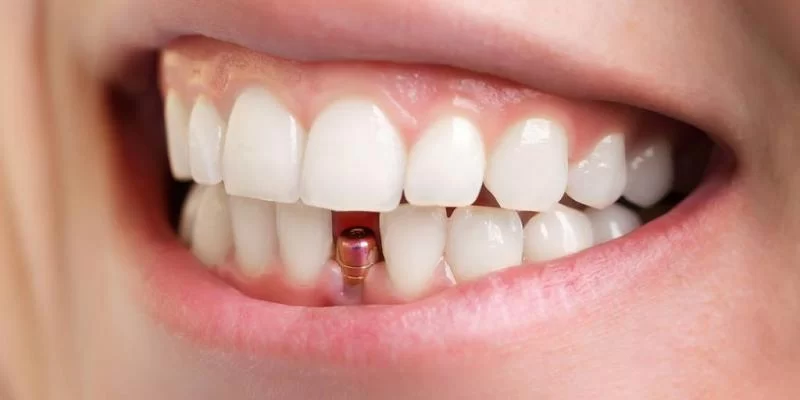
How Long Do Dental Implants Last and When to Replace Them? Everything You Need to Know
- How Long Do Dental Implants Last?
- Factors Influencing the Longevity of Dental Implants
- Signs It's Time to Replace Your Dental Implants
- How to Maintain Your Dental Implants for Maximum Lifespan
1. How Long Do Dental Implants Last?
One of the most frequently asked questions about dental implants is how long they last. On average, dental implants can last anywhere from 20 to 30 years, sometimes even longer with proper care. However, their lifespan is not indefinite, and they may need to be replaced or repaired over time, depending on various factors.
Unlike traditional dental restorations such as bridges or dentures, dental implants are designed to be a permanent solution to tooth loss. The titanium post that integrates with the jawbone is highly durable, making dental implants one of the most reliable options for tooth replacement.
2. Factors Influencing the Longevity of Dental Implants
The lifespan of your dental implants can vary based on several key factors. Understanding these elements can help you take steps to ensure your implants last as long as possible.
2.1. Oral Hygiene
Good oral hygiene is essential for maintaining the health of your dental implants. Brushing twice a day, flossing, and visiting your dentist regularly for check-ups and cleanings will prevent infections and plaque buildup, which can lead to implant failure.
2.2. Bone Health
The bone that supports the dental implant plays a critical role in its longevity. If the bone surrounding the implant is weak or deteriorates over time, the implant may loosen and need to be replaced. Maintaining a healthy diet and lifestyle can help keep your bones strong.
2.3. Lifestyle Choices
Habits like smoking or excessive alcohol consumption can reduce the lifespan of dental implants. Smoking, in particular, can interfere with the healing process after surgery and increase the risk of implant failure.
3. Signs It's Time to Replace Your Dental Implants
While dental implants are known for their durability, there are some signs that may indicate it's time to replace them. Early intervention can save you from more severe complications. Here are some warning signs:
3.1. Implant Loosening
If your implant feels loose or unstable, it may be time to consult your dentist. Loosening can occur if the implant has failed to properly fuse with the bone or if there is an infection.
3.2. Pain or Discomfort
While minor discomfort is normal after the implant procedure, persistent pain or discomfort can signal a problem, such as an infection or bone loss around the implant. If pain persists, it's crucial to seek professional evaluation.
3.3. Gum Recession
Gum recession around the implant may indicate that the tissue is not healing correctly or that the implant is no longer secure. This can lead to further complications, including exposure of the implant post.
4. How to Maintain Your Dental Implants for Maximum Lifespan
Proper maintenance is the key to extending the life of your dental implants. Here are some practical tips to keep your implants in top condition:
4.1. Regular Dental Check-ups
Schedule routine check-ups with your dentist to monitor the health of your implants and surrounding tissues. Regular professional cleanings are also essential for removing plaque and preventing infections.
4.2. Avoid Chewing Hard Objects
Avoid biting down on extremely hard objects, such as ice or hard candies, as this can damage your implant or the crown attached to it. It’s important to be mindful of the forces placed on your dental implants.
4.3. Use a Nightguard if Needed
If you grind your teeth at night, talk to your dentist about getting a custom nightguard. Teeth grinding can put excess pressure on implants, leading to damage or even failure over time.
Dental implants can last many years when cared for properly, but they’re not invincible. If you’re experiencing issues with your implants or are considering getting them, it’s crucial to consult a dental professional who specializes in implants. At Dentistry Toothtruth, we offer expert advice and solutions for your dental implant needs.
Ready to ensure the long-term health of your implants? Visit Dentistry Toothtruth today to learn more about dental implant care and maintenance or explore your replacement options.







 Lakewood Dental Care4.0 (12 review)
Lakewood Dental Care4.0 (12 review) Stephanie Dental Group4.0 (250 review)
Stephanie Dental Group4.0 (250 review) Dean Street Dental5.0 (259 review)
Dean Street Dental5.0 (259 review) Dr. Wayne E. Turk, DMD5.0 (3 review)
Dr. Wayne E. Turk, DMD5.0 (3 review) Smile Central Dental4.0 (506 review)
Smile Central Dental4.0 (506 review) Pacific Oral & Maxillofacial Surgery and Dental Implant Center4.0 (66 review)
Pacific Oral & Maxillofacial Surgery and Dental Implant Center4.0 (66 review) The Importance of Oral Health Education During Pregnancy for a Healthy Pregnancy
The Importance of Oral Health Education During Pregnancy for a Healthy Pregnancy Best Tips for Brushing Your Teeth Properly for Healthy Gums: Essential Techniques for Oral Health
Best Tips for Brushing Your Teeth Properly for Healthy Gums: Essential Techniques for Oral Health Why Skipping Dental Checkups Can Lead to Bigger Oral Health Problems
Why Skipping Dental Checkups Can Lead to Bigger Oral Health Problems Advantages of Porcelain Dental Restorations
Advantages of Porcelain Dental Restorations How Can Diabetes Cause Tooth and Gum Problems? Preventing and Managing Oral Health Issues
How Can Diabetes Cause Tooth and Gum Problems? Preventing and Managing Oral Health Issues Healthy Habits for Promoting Good Oral Health and Hygiene: Tips for a Healthy Smile
Healthy Habits for Promoting Good Oral Health and Hygiene: Tips for a Healthy Smile